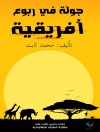In ‘Roughing It, ‘ Mark Twain presents a vivid and humorous account of his formative years spent in the American West during the 1860s. Through a blend of travelogue and autobiography, Twain employs a rich narrative style characterized by colloquial language, keen observations, and satirical wit. The book serves not only as a chronicle of his adventures but also reflects the broader cultural and social dynamics of a rapidly expanding America, capturing the spirit of the Gold Rush era and the quest for personal fortune amidst the untamed wilderness. Mark Twain, born Samuel Clemens in 1835, drew extensively from his own experiences as a gold prospector and journalist in Nevada and California. His encounters with diverse characters and the often harsh realities of frontier life profoundly influenced his storytelling. Twain’s unique perspective, shaped by both the exuberance of youth and the disillusionment of adulthood, lends authenticity and depth to this narrative, making it resonate with both humor and insight. For readers intrigued by America’s western expansion, ‘Roughing It’ is an essential read that melds historical context with Twain’s unique voice. Its engaging anecdotes and vivid descriptions of the American frontier invite readers to explore not only the nation’s past but also the enduring human spirit in the face of adversity.
เกี่ยวกับผู้แต่ง
Samuel Langhorne Clemens, better known by his pen name Mark Twain, was a towering figure in American literature renowned for his wit, satirical prowess, and keen social commentary. Born on November 30, 1835, in Florida, Missouri, Twain grew up along the banks of the Mississippi River, an influence that would flavour much of his writing. ‘Roughing It’, one of his earlier works published in 1872, is a semi-autobiographical account that humorously chronicles his adventures and travels through the Wild West during the 1860s. His literary style in this book, as in many others, blends vivacious storytelling with vibrant characterizations and often reflects his personal experiences and the transformation of America during his lifetime. Twain’s most celebrated novels, ‘The Adventures of Tom Sawyer’ and its sequel ‘The Adventures of Huckleberry Finn’, are lauded for their realistic dialogue and unflinching critique of antebellum society. His prolific output spanned various genres, including travel writing, social criticism, and fiction. Twain’s legacy as a literary icon endures, with his works providing insight not only into the 19th-century American life but also the human condition. He passed away on April 21, 1910, leaving behind a wealth of literature that continues to be studied, enjoyed, and revered for its innovation and artistry.












